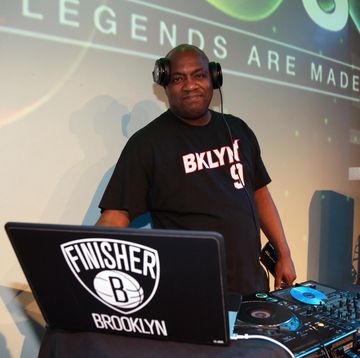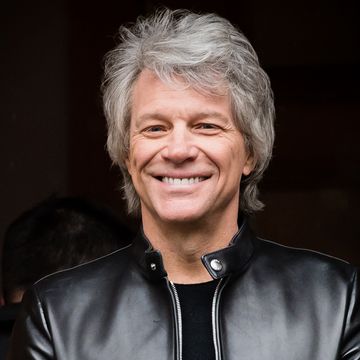(1940-)
Who Is Tom Jones?
Tom Jones is a Welsh singer who was influenced as a child by American blues, r&b and rock 'n' roll, over the past five decades the singing legend has produced hits in both the United States and the United Kingdom. Highlights include classics such as "Once Upon a Time," "With These Hands," "What’s New Pussycat?," "Green, Green Grass of Home" and "Delilah." He continued to put forth successful albums from the '80s into the new millennium, with hits particularly catered to the British and European markets. Drawing on his extensive musical experience, Jones became a judge on the U.K. reality show The Voice in 2012.
Background and Early Life
Born Thomas John Woodward, Jones entered the world on June 7, 1940, in the industrial town of Pontypridd, Wales, the son of Thomas Woodward, a miner, and Freda Jones, a homemaker. From an early age Jones loved to sing at gatherings and in the school choir.
As a child in school, he struggled with dyslexia but enjoyed listening to music, including BBC radio, which featured American blues, r&b and rock—genres which later influenced his musical style. He was also diagnosed with tuberculosis at the age of 12 and was kept quarantined at home for an extensive period of time.
As a teen, Jones was more interested in booze and girls rather than his education, and quit school at age 16. To earn money he worked as a builder's laborer and a door-to-door vacuum salesman.
International Pop Hits and Grammy
In 1963, Jones started to sing with the band Tommy Scott with the Senators. The crowds loved the group, but growth was limited due to their non-urban location. This changed the next year, when London-based Gordon Mills discovered Jones, bringing him to London and becoming his manager.
With a new solo career, the artist changed his name to Tom Jones at the direction of Mills, who was inspired by the 1963 Albert Finney film. Decca Records signed Jones, but his first single, "Chills and Fever," didn't catch on. However, his second single, the groovy, carefree "It's Not Unusual," peaked at No. 1 on the British charts in 1965 and was an American top 10 hit.
With success came a U.S. appearance on The Ed Sullivan Show. Throughout the latter half of the 1960s, Jones had an array of hit singles, including "Once Upon a Time," "With These Hands," "Green, Green Grass of Home" (a no. 1 hit in the U.K.), "Detroit City," "I'll Never Fall in Love," "I'm Coming Home," "Delilah" and "Help Yourself."
Jones also became part of the cultural landscape via his soundtrack work. Burt Bacharach and Hal David wrote the theme song for the 1965 comedy What's New Pussycat?, a track which Jones performed amidst five out-of-sync pianos. That same year, Jones was also heard singing "Thunderball," the top 40 title track of the James Bond film of the same name. The crooner later sang the theme song to the 1966 Warren Beatty comedy "Promise Her Anything." That same year he won a Grammy for Best New Artist.
'This Is Tom Jones'
From 1969 to 1971, Jones starred in his own TV show, This Is Tom Jones, which was based in America and aired in both the U.S. and Great Britain. He also released one of his most iconic hits, 1971's "She's a Lady," a track which reached no. 2 on the American charts though lyrically out of step with the feminist movement. Jones spent much of the 1970s setting up shop in Las Vegas, hanging out with Elvis Presley, touring and launching a record label, MAM Records, with his manager. Later in the decade he had modest success in America with the top 20 single "Say You'll Stay Until Tomorrow," but his presence on the stateside charts was coming to an end.
In 1986, Mills passed away, and Jones's son, Mark, replaced him as the singer's manager. The next year Jones released the song "A Boy From Nowhere," which put him back on the British charts and reached no. 2 pop. From 1988 to 1991, Jones worked on various collaborative projects. He performed with the group Art of Noise to create a bombastic remake of Prince's hit song "Kiss," which was a U.K. top 5 hit with a video that won the MTV Breakthrough Award. Jones also partnered with singer Van Morrison to release the 1991 album Carrying a Torch.
Later Career
Jones subsequently released the albums The Lead and How to Swing It (1994) and Reload (1999); the latter was a collection of covers which went platinum six times in the United Kingdom and became a big seller internationally, offering up hits like "Mama Told Me Not to Come Home" and "Sex Bomb." He also branched into TV and film, appearing as himself on The Simpsons, hosting award shows and acting in the films Mars Attacks! (1996) and Agnes Browne (1999).
Success continued through the 2000s, during which time he won many accolades, including the Brit Award for Best Male Artist. Other highlights included a performance for President Bill Clinton at the White House Millennium Celebration and for Britain’s monarchy for the Queen’s Golden Jubilee. Jones also received the Brit Award for Outstanding Contribution to Music.
He released Mr. Jones, in collaboration with Wyclef Jean, in 2003 and the following year dropped another album, Tom Jones & Jools Holland. In 2006, he had yet another U.K. top 10 hit, "Stoned in Love," working with trance act Chicane. In 2008, Jones released his first album in 15 years in the United States, 24 Hours. His acclaimed album Praise & Blame was then released in 2010, an acoustic, spiritually driven effort.
Drawing on his extensive musical experience, in 2012 Jones became a judge on the BBC musical-competition reality show The Voice. In May of that year he released the album Spirit in the Room, which included covers of songs by Paul McCartney, Paul Simon and other notable artists. In 2015, he released his 41st studio album Long Lost Suitcase to generally positive reviews. That same year, he published his memoir, Over the Top and Back: The Autobiography.
Controversy arose over Jones's affiliation with The Voice when he was fired in 2015 and replaced by fellow Brit artist Boy George. Jones was re-hired by the show when it was bought by ITV for a 2017 run, but then faced pushback from viewers who felt his comments about a winning singer's weight were inappropriate.
Personal Life
Jones married his childhood love Melinda "Linda" Trenchard in 1957 at age 16, and together they had a son, Mark, born the same year. They remained together for nearly 60 years until Trenchard died from cancer in 2016.
In 1974 Jones moved his family to the United States due to resentment of Britain's high taxes. He bought Dean Martin's house in California's posh Bel-Air area.
Though he remained married to Trenchard, Jones was well known for his infidelities. During his career heyday he admitted to sleeping with more than 250 groupies a year. In 1987, he fathered a son through a four-day fling with model Katherine Berkery. Though for over 20 years Jones denied paternity, a DNA test in 2008 proved he was the boy's father.
For his musical accomplishments, Queen Elizabeth II bestowed upon Jones the honor of Order of the British Empire (OBE) in 1999 and knighted him in 2006.
QUICK FACTS
- Name: Tom Jones
- Birth Year: 1940
- Birth date: June 7, 1940
- Birth City: Pontypridd, Wales
- Birth Country: United Kingdom
- Gender: Male
- Best Known For: Tom Jones is a Welsh singer best known for songs such as "It's Not Unusual," "Green Green Grass of Home," "Delilah," "Till" and "A Boy From Nowhere."
- Industries
- Pop
- Astrological Sign: Gemini
- Nacionalities
- Welsh (Wales)
Fact Check
We strive for accuracy and fairness.If you see something that doesn't look right,contact us!
CITATION INFORMATION
- Article Title: Tom Jones Biography
- Author: Biography.com Editors
- Website Name: The Biography.com website
- Url: https://www.biography.com/musicians/tom-jones
- Access Date:
- Publisher: A&E; Television Networks
- Last Updated: July 24, 2020
- Original Published Date: April 2, 2014
QUOTES
- For the last 40 years I've travelled the world singing and entertaining, bringing a bit of Wales and Great Britain to my friends, colleagues and audiences. I wear my nationality on my sleeve and I'm proud of it!
- I sensed very quickly that I wouldn’t find fame a burden. As someone who has looked at it from both sides, being famous is preferable to the alternative.
- The BBC received complaints when I sang on 'Blue Peter and Crackerjack' in the 1960s. One viewer wrote: 'I don’t want that man moving like that in front of my young family. And at teatime, too.' Apologies to all concerned.
- I’ve had my career in reverse. Most people travel from critical acclaim to cabaret; I seem to have traveled from cabaret to critical acclaim.
- When [my wife] Linda passed away it hit me so hard I didn’t know whether I could or not, I really didn’t. I said, ‘Linda I don’t know what I’m going to do.’ She could see I was devastated, and I was. She said ‘Don’t worry, you’ll be alright. Don’t worry about it. Just go forward.'
- It’s all about song choice and I think that’s the real reason we haven’t seen a superstar from the show [The 'Voice'], because the songs they end up singing are like ‘whatever.’ The mellow songs are bad and the hyper songs are bad and that’s one of the reasons I feel Polydor in the mix is going to help change that. Getting new songs for the artist is important.












